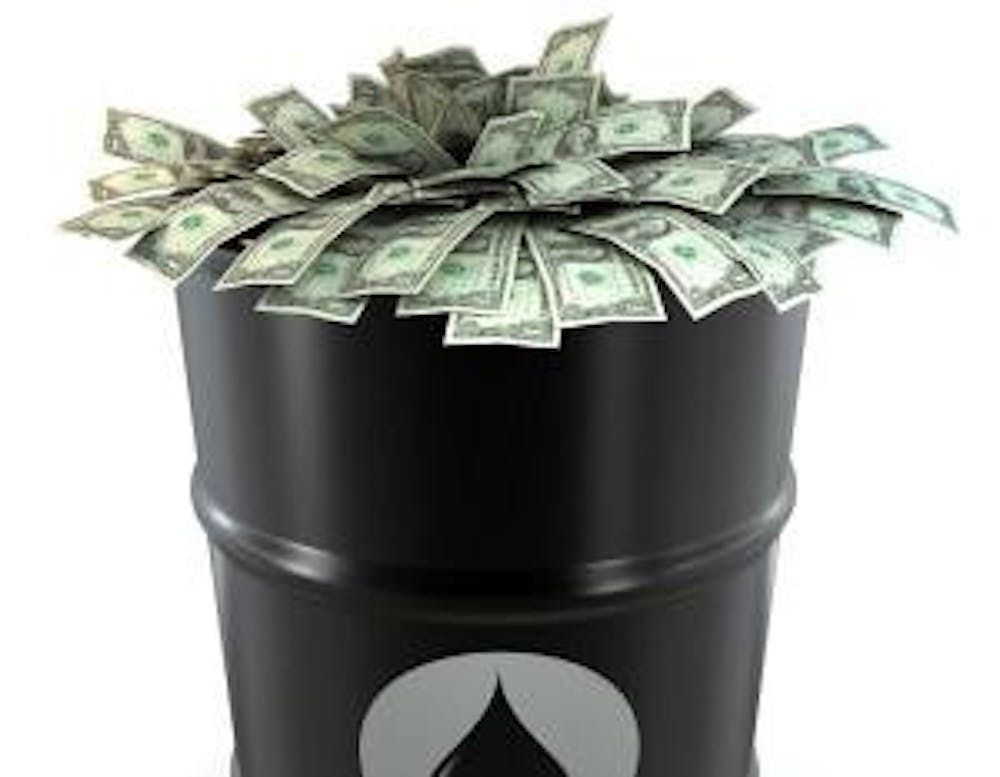Earlier, I touched upon the market forces responsible for determining demand for (and, consequently, the price of) oil. There was, however, some concern that my coverage of the supply-demand dynamic was relatively one-sided.
To reiterate, it is absolutely factual that the oil companies do not determine the price of oil. The only control oil companies can exert over price is in the quantity of barrels they supply. Any suggestion of wrongdoing on the part of oil corporations could stem from nothing other than a suspicion that they are intentionally holding back barrels of oil or underproducing in order to artificially inflate demand (thereby extracting a higher price for the barrels they do have, while reducing their variable costs). There are several reasons why such allegations are rationally infeasible.
Rather than hold barrels back, oil companies have continually desired to expand their production capacity. However, the Clinton administration aggressively blocked new exploration as well as the construction of more refineries. While this may have been noble from an environmental standpoint (ultimately it may take the kind of pressure we are under right now to compel us to change for the better), economically it is a recipe for just the kind of disaster we are having today.
As well, the reason oil corporations desire increased production is (unsurprisingly) to sell more barrels. The margins on a barrel of oil right now are so large (they have never been greater) that it is not reasonable to assume that the oil companies are refusing to sell barrels at the current record price. To suggest that the current commodity price of oil is the result of (the absence of) these phantom barrels would be to presume that a more profitable supply-demand equilibrium existed below the current level of production. Given the relatively low marginal cost of producing a barrel of oil, the price per barrel would have to drop radically for oil companies to be financially justified in holding barrels back. Unless big oil has enough barrels on tap to flood the market (I won't say this is impossible, per se, but it's close), a price drop of the magnitude necessary to provide such financial justification would simply not occur.
Indeed, I have recently observed instances where crude supplies have risen more rapidly than (Wall Street) analysts expected, only to watch the commodity price of oil climb frenetically to record highs. Lately, oil has been acting like a hot stock, surging on high trading volume for little tangible reason. Hence, I wrote Economy in a Crunch, attempting to explain why speculative investors are partly responsible for the rapid increase in the price of oil (and, consequently, prices at the pump).
This point is driven home by the debacle we witnessed June 6, as the DOW plummeted almost 395 points (3.13%) with oil surging $10.75 a barrel (8.41%) to $138.54. Friday saw the biggest hit the DOW has taken since February of 2007 (around the beginning of the subprime mortgage crisis) and the largest single-day increase in the price of oil in history.
Static supply and voracious demand have been exacerbated by fear and greed. With worsening conditions in the stock market and potentially lucrative opportunities in commodities, speculators are looking to capitalize. Indeed, the recent dropback in the price of oil to $131.31 (down $7.23 in two days) reeks of profit-taking, as investors cash out their contracts and count their gains.
There are plenty of culprits in this crisis, but we would be better served rattling our sabers at opportunistic investors or, better yet, the SUVs in our driveways than ExxonMobil or ConocoPhillips.






